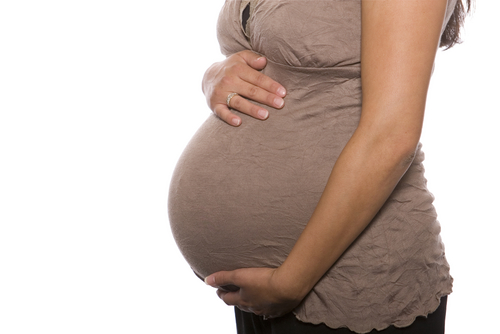Dr. Brett Parkinson with Mountain Medical weighs in on “The Fertility Diet.”
Fad diets have been around for years, taunting the overweight with promises of slim waistlines and hard abs. But in the last few weeks a new kind of diet has emerged. No, not one for those who want to shed a few pounds. But one that may eventually result in a twenty-five to thirty-five pound weight gain. It’s the fertility diet. Researchers at the Harvard School of Public Health, lead by epidemiologists Drs. Walter Willet and Jorge Chavarro, have created quite a buzz in anxious bedrooms across America in their new book, “The Fertility Diet.” The results of their research, published in the November issue of “Obstetrics and Gynecology,” have received mixed reviews from the medical community. While some have welcomed the proscriptions of the diet as new hope for infertile couples, others have argued that the conclusions of the study may be misleading, delaying appropriate treatment for infertility as couples seek solutions in the kitchen instead of the doctor’s office.
An estimated 6 million American couples are plagued with infertility. Some couples may be discouraged after just a few months of trying to conceive, not understanding exactly what infertility is. Before embarking on any kind of cure, it’s important to know the cause.
INFERTILITY FACTS AND STATISTICS
• Defined as the inability to conceive after one year of unprotected sex
• Diagnosed through medical interviews and physical examination of both partners
• Affects as many as 1 in 6 couples
• One third of the time the problem lies with the male; one third, the female; and one third, both partners
The infertility diet is not for men, although it certainly wouldn’t hurt. It supposedly improves female fertility by fine-tuning the delicate balance of hormones needed for successful reproduction. But it doesn’t reverse most of the causes of female infertility. So before relying on the new guidelines as a cure, it is imperative that all barriers to conception be ruled out. Time is of the essence. The older a woman gets, the more difficult it is to conceive. So better to rule out non-dietary causes first.
CAUSES OF FEMALE INFERTILITY
• Increasing Age
• Pelvic Inflammatory Disease (often caused by sexually transmitted diseases)
• Uterine Fibroids (benign tumors of the uterus)
• Endometriosis
• Prenatal exposure to Diethylstilbestrol (DES)
• Polycystic Ovarian Disease
• Pelvic Adhesions (scar tissue) from prior surgery
• Ovulatory Dysfunction
The fertility diet supposedly helps only those with the last item, ovulatory dysfunction, a condition characterized by irregular or absent ovulation. This accounts for approximate 18 to 30 percent of female infertility. What the researchers discovered was that diet can affect a woman’s hormone levels, particularly insulin, which can then affect fertility. In the study, the participants who followed five or more of the dietary recommendations reduced their risk of ovulatory dysfunction when compared to women who followed none of the guidelines. The study included over 18,0000 women who were taking part in the Harvard University Nurses’ Health Study, a long-term research endeavor analyzing the effects of diet and other variables on the development of heart disease, cancer and other diseases. Each of the women in the study indicated she was trying to conceive, and over an eight-year period, most of them did. However, 1 in 6 did experience some difficulty in conceiving. Hundreds of those women experienced ovulation problems. They all recorded their diets in detail, allowing the researchers to look for patterns that might explain why some women had more trouble than others in getting pregnant, when other variables remained constant.
The researchers make specific recommendations for choices in carbohydrate, protein, fat and dairy products.
CARBOHYDRATES
• It’s not so much the amount of carbs one consumes, but the type. There are fast carbs (bad) and slow carbs (good). Fast carbs, those that are easily digested and ever so tasty–like white bread, potatoes, sugared sodas and baked goods–cause blood sugar levels and insulin levels to rise quickly, and thus adversely affect the hormonal milieu favorable to ovulation. Other fast carbs include cold breakfast cereals and white rice. Slow carbs, which are rich in fiber, are associated with improved ovulation. If you’re looking for a slow carb meal, shop for brown rice, pasta ,beans, vegetables, whole fruits and dark bread. The total amount of carbohydrate in the diet was not associated with infertility.
FATS
• Ovulatory problems were associated with increased consumption of trans fats, while improved fertility was associated with monounsaturated fats. Unfortunately, we find trans fats in America’s favorite food, French fries, as well as in other goodies like candy bars, doughnuts and other baked goods. Good fats are found in olive oil.
PROTEIN
• In a nutshell, it is better to get more protein from plants than animals. So rather than relying on red meat, pork, turkey or chicken for one’s protein intake; it may be wise to increase consumption of beans, peas, tofu, peanuts or soybeans.
MILK AND ICE CREAM
• This was the big surprise. As reported in a recent issue of “Newsweek,” a daily serving or two of whole milk and foods made from whole milk–full-fat yogurt, cottage cheese, and yes, even ice cream–seem to offer some protection against ovulatory infertility, while skim and low-fat milk do the opposite….The more low-fat dairy products in a woman’s diet, the more likely she was to have had trouble getting pregnant. The more full-fat dairy products in a woman’s diet, the less likely she was to have had problems getting pregnant.”
Although the findings of Nurse’s study are intriguing, they only prove an association of diet and fertility, not a cause. The gold standard of medical research is the prospective, randomized trial, not an observational study like this one. To conclusively prove that diet affects fertility, the researchers would have to randomly assign a large number of childbearing-age women, who also were actively trying to get pregnant to two groups: one following a special diet, the other a regular diet. The researchers in the Harvard study failed to reach that standard.
ABOUT MOUNTAIN MEDICAL PHYSICIAN SPECIALISTS
Mountain Medical Physician Specialists is a partnership of over 50 board-certified radiology and vascular professionals providing patients along the Northern Wasatch Front with the latest imaging and vascular care available. Mountain Medical professionals specialize in vascular surgery, vascular and interventional radiology, CT, neuroradiology, orthopedic imaging, MRI, women’s imaging, ultrasound, nuclear medicine and body imaging. For more information visit www.mtnmedical.com.















Add comment